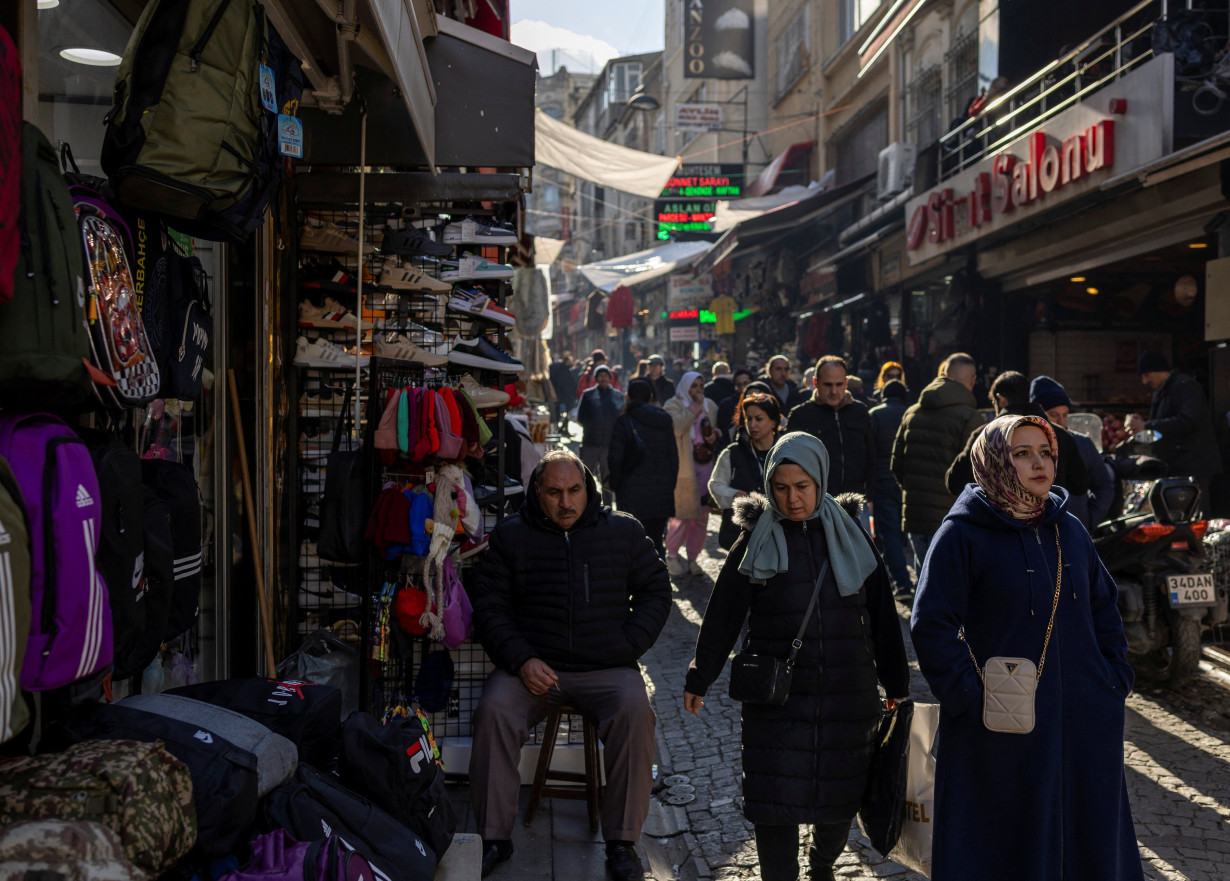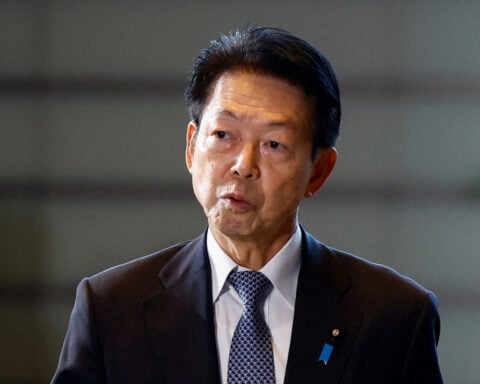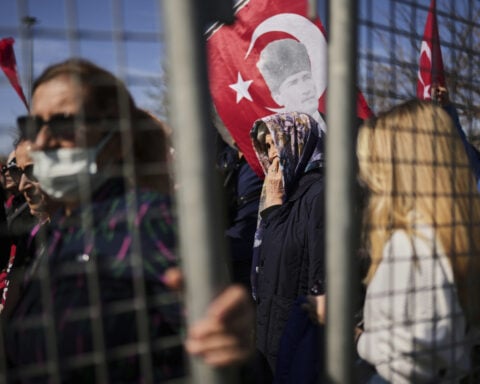ISTANBUL (Reuters) - Turkish inflation is expected to end the year a bit higher than previously expected, a Reuters poll showed on Wednesday, reflecting fallout from a currency selloff after authorities detained and jailed Istanbul's mayor last week.
Based on the median forecast of nine poll respondents, year-end inflation is seen at 29.75%, up one percentage point from the previous poll, due to fallout from market volatility last week in which Turkish assets fell.
The lira dropped as much as 12% on Wednesday last week after Mayor Ekrem Imamoglu - President Tayyip Erdogan's chief political rival - was charged, detained and later jailed pending a trial in moves that raised concerns over rule of law.
The forecasts suggest a risk to an economic picture in which both inflation and interest rates were heading lower as part of an orthodox economic programme that promised Turks future relief after years of soaring prices and currency crashes.
The annual rate is expected to fall to 38.9% in March from February's 39.05%, the Reuters poll showed. The monthly inflation rate is seen edging up to 3% based on the median, with forecasts ranging from 2.7% to 3.56%.
Lira briefly touched a record low of 42 against the U.S. dollar last Wednesday though later recovered most of those losses. It has since remained near 38 due to central bank steps to stabilise it.
The central bank tightened its funding rate by 400 basis points and sold some $27 billion in foreign reserves since the mayor's arrest, data shows. It expects year-end inflation of 24% based on its February forecast.
Wall Street bank Morgan Stanley said the "front-loaded currency depreciation" will likely lift inflation readings mainly in April and May.
"Provided that FX pressures remain contained, and inflationary pressures start easing from June, the (central bank) may have room to restart cuts in June," it wrote.
Morgan Stanley also said they've revised up their end-year policy rate forecast to 33.5% from 30.5% previously.
EASING CYCLE
The next central bank policy rate decision is set to April 17 when it could slow, pause or even reverse its easing cycle, analysts say. It held an unscheduled meeting last week to hike the overnight borrowing rate.
The central bank has initiated an easing cycle and cut its policy rate to 42.5% gradually in the past three scheduled meetings. Before that, since mid-2023, it raised the rate 4,150 basis points to cool inflation in a shift to orthodox policy, after years of low rates aimed at fostering growth.
Finance Minister Mehmet Simsek and Central Bank Governor Fatih Karahan told investors on a call Tuesday that they expect especially the April inflation reading to be somewhat higher due to the lira's 4% depreciation, a participant said.
They see a 40% "pass through" rate, which measures how much the depreciation lifts prices mostly via imports.
Another signal that the market turmoil may have shaken Turks' confidence in price relief came from the Koc University Household Inflation Expectations Survey conducted between March 15 and 19 last week.
On March 19 - the day Imamoglu was detained and the lira sold off - "we observed a noticeable shift in the overall sentiment...indicating that the political crisis is being reflected in household expectations," said Selva Demiralp, a Koc professor who leads the survey.
The March survey data, which tracks annual and year-end expectations, it not yet released. In recent months it and other surveys have shown still-lofty expectations ticking down.
The Turkish Statistical Institute will release March inflation data at 0700 GMT on April 3.
(Reporting by Ezgi Erkoyun and Jonathan Spicer; additional reporting by Marc Jones)

 Trump has begun another trade war. Here's a timeline of how we got here
Trump has begun another trade war. Here's a timeline of how we got here
 Canada's leader laments lost friendship with US in town that sheltered stranded Americans after 9/11
Canada's leader laments lost friendship with US in town that sheltered stranded Americans after 9/11
 Chinese EV giant BYD's fourth-quarter profit leaps 73%
Chinese EV giant BYD's fourth-quarter profit leaps 73%
 You're an American in another land? Prepare to talk about the why and how of Trump 2.0
You're an American in another land? Prepare to talk about the why and how of Trump 2.0
 Chalk talk: Star power, top teams and No. 5 seeds headline the women's March Madness Sweet 16
Chalk talk: Star power, top teams and No. 5 seeds headline the women's March Madness Sweet 16
 Purdue returns to Sweet 16 with 76-62 win over McNeese in March Madness
Purdue returns to Sweet 16 with 76-62 win over McNeese in March Madness








